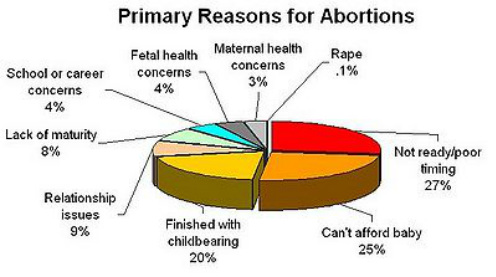
In addition to allowing women to obtain abortion pills through the mail without seeing a doctor first, the 2021 modification of the REMS added a requirement that pharmacies dispensing chemical abortions be “specially certified.” The Risk Evaluation and Mitigation Strategies (REMS) protocol previously required that abortion pills be dispensed in a healthcare setting until the FDA permanently lifted those requirements in 2021. “These complications may be increased when women self-administer chemical abortion drugs without benefit of an in-person evaluation by a health care provider.” “Induced abortions, whether chemical or surgical, can have serious complications that include hemorrhage, infection, and incomplete abortion,” the paper concluded. The American College of Pediatricians study also determined that the likelihood of an adverse event following any method of abortion was “low at 1.9%” but acknowledged that “this risk was higher in the medical abortion group than the surgical abortion group.” The academic review also noted “a six-fold increase in adverse events in the patients who had a chemical abortion.” In a previous interview with The Christian Post, Sue Turner, director of Physicians for Life, said the FDA's earlier decision to expand the use of abortion-inducing drugs made them “less effective," requiring abortionists “to also perform a surgical abortion, which meant that women were being charged for both chemical and surgical procedures.” It cited a 2015 study conducted by Planned Parenthood at Los Angeles that found “the medication abortion group was more likely to undergo an unanticipated aspiration, for ongoing pregnancy or persistent pain, bleeding, or both (2.1% compared with 0.6%).”

The American College of Pediatricians also compared the safety of chemical abortions and surgical abortions.

Misoprostol can also cause more severe side effects such as “hypotension, myocardial infection, uterine rupture and pulmonary embolism.” In rare cases, mifepristone can cause a “rare, serious, and usually fatal infection with Clostridium sordellii.” Common side effects of mifepristone include “nausea, vomiting, abdominal pain, diarrhea, fever, chills, fatigue and headache.” Common side effects of misoprostol, which results in the expulsion of the preborn baby’s remains from the uterus, include “nausea, vomiting, diarrhea, headache, dizziness, fever and chills.” The side effects of mifepristone and misoprostol, the abortion-inducing drugs taken within 24 to 48 hours of each other, are very similar. “Planned Parenthood acknowledges the following possible complications after a chemical abortion: bleeding, infection, allergic reaction, retained fetal tissue, and incomplete abortion.” “Bleeding, cramping, and abdominal pain are commonly associated with a chemical abortion, and approximately 8% of women will experience bleeding for more than 30 days afterward,” the paper states. “Medication abortion is the term used in most medical literature as well as by Planned Parenthood to describe those abortions induced by the use of two chemicals - mifepristone and misoprostol,” the document states, adding that “chemical abortion,” “medical abortion” and “abortion pill” are the most commonly used synonyms for a medication abortion. Scott Field, takes information directly from the website Just The Pill and the warnings that come with the drugs used to induce an abortion.

Instead of protecting a mother and her baby, chemical abortion puts a woman’s life at risk and makes her the facilitator of her child’s death.”Īnderson’s paper, which she co-wrote with Dr. This is antithetical to the practice of medicine. … Chemical abortion pills are intended to result in the death of a human being. “This disregard for human life and safety betrays the purpose of the FDA - safety - and reveals what chemical abortion truly serves: politics and profit, not people. Jane Anderson, co-author of the review, addressed the implications of the FDA's decision, warning, “Women are deeply harmed by chemical abortion.” The American College of Pediatricians released a 24-page report Tuesday titled “Chemical Abortions: With and Without Medical Supervision,” in which Dr.

| Bryan Bedder/Getty Images for CVS PharmacyĪ group of pro-life doctors are warning about the risks associated with taking abortion pills, especially without medical supervision, after the Food and Drug Administration finalized a Biden administration rule change to make the drugs available at pharmacy chains and mail-order companies nationwide. People walk outside of a CVS Pharmacy store in New York City on January 24, 2019.


 0 kommentar(er)
0 kommentar(er)
